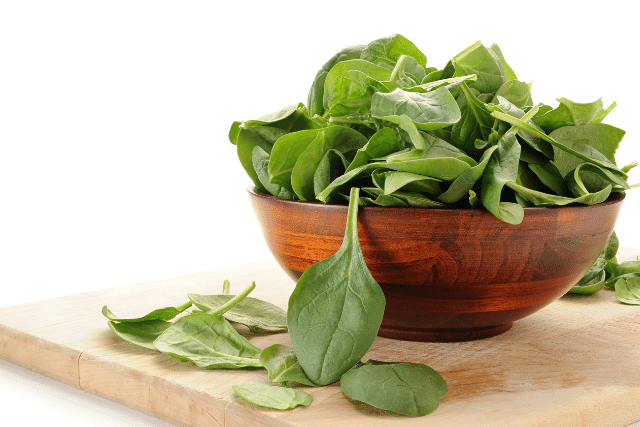Recent Posts
-

- Diabetes-Friendly Nutrition: Smart... 08.12.2024
-

- Nutrition for Chronic... 08.12.2024
-

- Anti-Inflammatory Diet: Food... 08.12.2024
-

- Low-Sodium and Heart-Healthy:... 08.12.2024
-

- Plant-Based Diets for... 08.12.2024
What Vegetables should people with Gout avoid?

It’s easy for people with no symptoms or illness to eat any food they want, but people with something they endure in the body; they need to be conscious and meticulous in what they eat.
The excruciating pain associated with gout makes it a frequent type of inflammatory arthritis. In most cases, only one joint is affected at a time (often the big toe joint). There are times when symptoms get much worse, referred to as flares, and there are periods when there are no symptoms, which are referred to as remissions. The question is, what causes it?
The condition is known as hyperuricemia, in which excessive uric acid in the body is the root cause of gout. The breakdown of purines, which are present both in your body and in the foods you consume, results in the production of uric acid by the body.
It is possible for uric acid crystals, also known as monosodium urate, to accumulate in the body's joints, fluids, and tissues when there is excessive uric acid in the body. There is no guarantee that hyperuricemia will result in gout, and hyperuricemia that is not accompanied by gout symptoms does not need treatment.
Purines are naturally occurring chemicals that, when purine-rich meals are digested, produce a waste product known as uric acid. Kidney stones, arthritis, and gout are among conditions that have been associated with uric acid.
Foods rich in purines include red meat, most types of seafood, and dairy products with high-fat content. These should be avoided at all costs; however, certain foods contain modest amounts of purines that may be consumed in moderation. These include chicken, beans, and some vegetables. It is recommended that those who suffer from gout adopt a diet high in foods low in purines, such as most vegetables, nuts, oils, fruit, and whole grains.
So does it mean that people with gout should avoid vegetables that can be high in uric acid? Well, let’s find out more in this article.
- Spinach
Unfortunately, not a single youngster ever paid attention when their parents or instructors advised them to consume spinach because of its positive effects on the body and the fact that it is a nutritious food. In the end, it was up to Popeye to encourage children to consume spinach, and boy, was he successful in doing so. A significant number of youngsters started eating spinach and continue to do so even today; nevertheless, in an unexpected turn of events, here is some information for everyone who has been eating spinach for some time now: People who have high amounts of uric acid are more likely to develop gout, which is an inflammatory type of arthritis. Spinach is full of purines, which are chemical substances that raise uric acid levels and, as a result, increase the likelihood of developing gout as well as the severity of its symptoms.
- Asparagus, Green Peas, Mushroom, Okra, and Cauliflowers
These vegetables have been said to NOT increase the level of effect on gout a person; however, If you suffer from gout, one of the most important things you can do for your diet is to cut down on foods that contain a lot of purine. In an ideal situation, you will consume very few or no foods that are very high in purine and only a tiny number of foods that are just moderate in their purine content. Even though these veggies contain a small amount of purine, they must be consumed in moderation since overeating may cause gout to flare up.
- Beets
There is a possibility that consuming a large number of beets might lead to the development of gout. Because the oxalates in beets may cause a rise in your body's uric acid level, eating excessive beets might cause gout to develop. Be sure to limit your daily consumption of beets to no more than one serving, equivalent to a half cup.
- Vegetables cooked in animal products.
In the same way that you could imagine okra is beneficial for gout treatment just because it is a vegetable, you might also believe that animal products are helpful for gout treatment because they are protein sources. But, there is a reason why many different kinds of animal products are on the list of foods that people with gout should avoid eating. These items have a high purine and animal fat content. On a diet to prevent gout, it is essential to avoid eating a lot of high-fat animal products. Still, certain animal items, such as low-fat dairy products, chicken, and some types of seafood, may be consumed.
Cooking vegetables with animal products may cause them to have a more excellent purine content, which in turn may cause the body to produce more uric acid. According to the Cleveland Clinic, an inherited predisposition to have high uric acid levels might also be a factor. Doctors still advise following a balanced diet even if there is a genetic component to an elevated risk of gout.
Sources:
- https://www.cdc.gov/arthritis/basics/gout.html#:~:text=quality%20of%20life%3F-,What%20is%20gout%3F,no%20symptoms%2C%20known%20as%20remission.
- https://www.livestrong.com/article/468746-what-vegetables-should-gout-sufferers-avoid/
- https://timesofindia.indiatimes.com/life-style/food-news/why-consuming-spinach-in-excess-is-bad/photostory/72427014.cms?picid=72427026
- https://www.medicinenet.com/foods_that_cause_gout_to_flare_up/ask.htm
- https://www.webmd.com/diet/health-benefits-beets#:~:text=Gout%20is%20an%20extremely%20painful,serving%20of%20beets%20per%20day.





